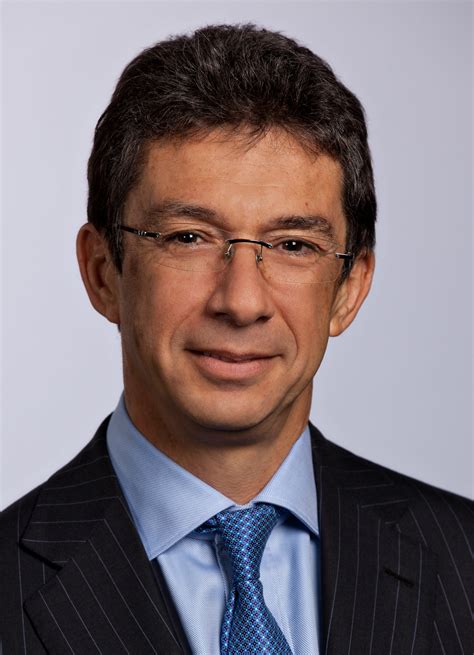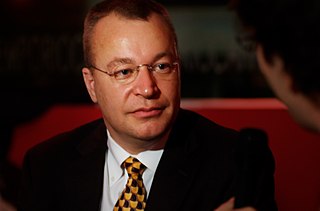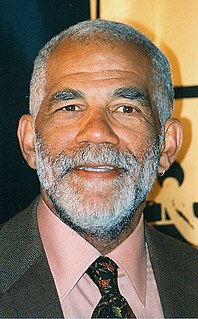A Quote by Denis Hayes
Environmentally, business in America in 1970 was very similar to business in China today. Even if a CEO wanted to be a responsible corporate citizen, he (and they were all "he's" then) simply couldn't invest a billion dollars in pollution controls to produce a product that was indistinguishable from those of his competitors. His products would be priced out of the market. Passing laws that created a clean, level playing field for whole industries had to be a core focus of the 1970s.
Quote Topics
America
Billion
Billion Dollars
Business
CEO
China
Citizen
Clean
Competitors
Controls
Core
Corporate
Created
Dollars
Even
Field
Focus
Had
His
Industries
Invest
Laws
Level
Level Playing Field
Market
Out
Passing
Passing Laws
Playing
Playing Field
Pollution
Pollution Control
Produce
Product
Products
Responsible
Similar
Simply
Then
Those
Today
Very
Wanted
Were
Whole
Would
Would Be
Related Quotes
The most important job of the entrepreneur begins before there is a business or employees. The job of an entrepreneur is to design a business that can grow, employ many people, add value to its customers, be a responsible corporate citizen, bring prosperity to all those that work on the business, be charitable, and eventually no longer need the entrepreneur. Before there is a business, a successful entrepreneur is designing this type of business in his or her mind's eye. According my rich dad, this is the job of a true entrepreneur.
An Athenian citizen does not neglect his state because he takes care of his own household; even those of us who are engaged in business have a very fair idea of politics. We do not regard a man who takes no interest in public affairs as harmless. We do not say that such a man 'minds his own business'. Rather we say he has no business here at all.
What's fascinating . . .is that you could now have a business that might have been selling for $10 billion where the business itself could probably not have borrowed even $100 million. But the owners of that business, because its public, could borrow many billions of dollars on their little pieces of paper- because they had these market valuations. But as a private business, the company itself couldn't borrow even 1/20th of what the individuals could borrow.
Shifting Philip Morris to the new a non-risk products doesn't mean that I will give market share to my competitors free of charge. In the markets where we are not present with IQOS yet or the other reduced-risk products, you still need to defend your share of the market. They still represent the bulk of our income, and so far they have financed the billions of dollars we have put behind these new products. But once we go national in a market, and absent capacity constraints, then you shift your resources and your focus to these new products.
The royalists of the economic order have conceded that political freedom was the business of the government, but they have maintained that economic slavery was nobody's business. They granted that the government could protect the citizen in his right to vote, but they denied that the government could do anything to protect the citizen in his right to work and his right to live. Today we stand committed to the proposition that freedom is no half-and-half affair. If the average citizen is guaranteed equal opportunity in the polling place, he must have equal opportunity in the market place.
If you look at the economics of Nokia roughly half of the company, half of the business, half of how we think about the business is focused on those emerging markets and on those lower-priced devices. But, of course, people who are aspirational and buying those lower-priced devices today are looking at smart phones tomorrow, and so forth.
If you look at the economics of Nokia, roughly half of the company, half of the business, half of how we think about the business is focused on those emerging markets and on those lower-priced devices. But, of course, people who are aspirational and buying those lower-priced devices today are looking at smart phones tomorrow, and so forth.
Under the antitrust laws, a man becomes a criminal from the moment he goes into business, no matter what he does. If he complies with one of these laws, he faces criminal prosecution under several others. For instance, if he charges prices which some bureaucrats judge as too high, he can be prosecuted for monopoly or for a successful 'intent to monopolize'; if he charges prices lower than those of his competitors, he can be prosecuted for 'unfair competition' or 'restraint of trade'; and if he charges the same prices as his competitors, he can be prosecuted for 'collusion' or 'conspiracy.'
The crisis [the Great Depression] discovered a great man in Franklin Roosevelt...None too soon he has carried America forward to the second stage of democratic realization. His New Deal involves such collective controls of the national business that it would be absurd to call it anything but socialism, were it not for a prejudice lingering on from the old individualist days against that word...Both Roosevelt and Stalin were attempting to produce a huge, modern, scientifically organized, socialist state, the one out of a warning crisis and the other out of a chaos.
80% of all products and services that will be on the market in five years do not exist today. So therefore, always be innovative, always be creative, always think, 'What new products or services could I create, could I represent, could I joint venture?" Sometimes you can find someone else that has a fabulous product or service that you can use your existing business or resources to sell and you can double your income or sales in your business by selling somebody else's product to the same customers that are buying yours.
"There's no CEO for the government." But if you were CEO for a day at the government, would you have tools and reports and wherewithal to look at government the way a business would look at its lines of business, its spending, its revenue? I've actually been working, first by myself and then with a group of people, on then on and off, and now much more on, almost since the I time left Microsoft.
I took a dozen of our top managers to Argentina, to the windswept mountains of the real Patagonia, for a walkabout. In the course of roaming around those wild lands, we asked ourselves why we were in business and what kind of business we wanted Patagonia to be. A billion-dollar company? Okay, but not if it meant we had to make products we couldn't be proud of. And we discussed what we could do to help stem the environmental harm we caused as a company. We talked about the values we had in common, and the shared culture that had brought everyone to Patagonia, Inc., and not another company.































